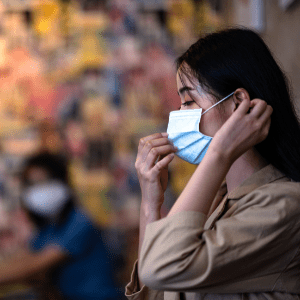Multidisciplinary Approach to Brain Fog and Related Persisting Symptoms Post-COVID-19
This article reviews an integrated approach to addressing COVID-related ‘brain fog' through research, clinical findings, and case examples.
Brain fog in post-COVID-19 is a complex health condition with multiple factors that increase risk, health processes driving impact, and often requires team-based care. The authors note “symptoms and etiology associated with brain fog including (1) cognition, (2) sleep, (3) psychological factors, and (4) neuroinflammation.” Having targeted approaches that improve sleep, self-regulation, psychological trauma, cognitive rehabilitation, and neural inflammation may be core to addressing the human impacts of long-term COVID-19.
Research has indicated challenges in long-term, post-COVID cognitions in neuropsychological systems related to executive functioning and attentional capacity, sometimes known as brain fog. While these symptoms can have multiple causal pathways, they can mirror hypoxia (loss of oxygen), diffuse axonal injury, transient ischemic attack (TIA), and stroke.
There are strong overlaps between sleep challenges and health outcomes, as well as the risk of long-term COVID-19 symptoms. Sleep supports both tissue repair and brain executive functions. Difficulty with sleep is common in individuals with trauma exposure impacting cognitive functioning. Sleep challenges are associated with increased cognitive challenges, increasing impact of existing health conditions, and increasing psychological distress.
Psychological factors such as Post-Traumatic Stress Disorder (PTSD), depression, anxiety disorders, and grief are common post-COVID. These mental health challenges increase the risk and impact of ‘brain fog' symptoms with “pooled prevalence of 45% for depression and 47% for anxiety in patients diagnosed with COVID-19.” Depression, trauma, and anxiety can increase and exacerbate cognitive challenges and are well documented as an important area of assessment when individuals are experiencing challenges with cognitive functioning. Developing tools, skills, and processes to support individuals from a somatic perspective could enhance recovery from this globally important health crisis.
Neuroinflammation is associated with wide-ranging mental health and health conditions. Cognitive functioning has been noted to be related to levels of neural inflammation. Improved diet and nutrients that reduce inflammation could be an impactful solution.
Developing a multidisciplinary approach that includes stress management, sleep quality, nutrition, exercise, mental health treatment, cognitive rehabilitation, and somatic processes that support autonomic and inflammatory regulation could be an important way to address the long-term cognitive impacts of COVID-19.
Read More: https://link.springer.com/article/10.1007/s42843-022-00056-7
Krishnan, K., Lin, Y., Prewitt, K. R. M., & Potter, D. A. (2022). Multidisciplinary Approach to Brain Fog and Related Persisting Symptoms Post COVID-19. Journal of health service psychology, 48(1), 31-38.

